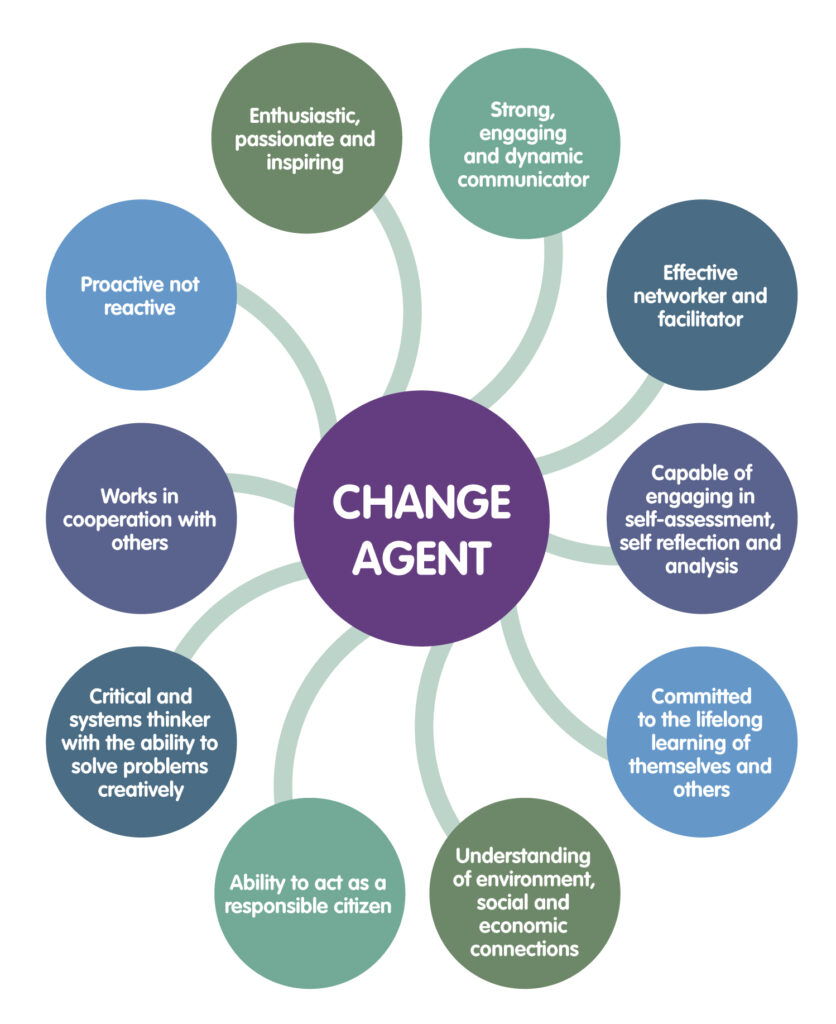The Change Agent
Definition: A change agent is an individual who promotes and supports a new way of doing something within an organisation.


“If you’re someone who yearns to have change maybe you should lead it”

WHY. HOW. WHAT
WHY: Our culture will advance with every comprehensive learner that we help create.
HOW: The way we can help develop comprehensive learners at the secondary level is through e-portfolios. We are going to create an environment where students are able to track their growth, own their learning, and be radically transparent about their learning experience.
WHAT: A successful implementation of e-portfolios will generate great intrinsic value. We will help prepare comprehensive learners who will not only exceed expectations in the classroom, but in corporate America as well.
These why, how, and what statements come from what my heart truly desires. I believe that the world is dynamic and changes are occurring everyday, so education should evolve as well. I wish to create learning environments that will help propel kids closer to their individual talents. I truly believe this how we groom our leaders of tomorrow. As educators we need to reframe from stripping the kids of their creativity and forcing these outdated methods. I want to make a difference in the kids lives. I hope to convert all the students that I encounter into life-long learners. I understood that I have a good chance of making this happen by pooling my resources with other driven and passionate teachers who are on par with what I have going on.


Crucial Conversations

I touched a little bit on crucial conversations in the “How to Become a Change Agent Section” one of the most influential MC’s Notorious B.I.G once stated that we can’t change the world unless we change ourselves. Judging off my “Why”, One can make an inference that I aspire to put a dent in the world by educating and converting my students into becoming life-long learners. Before I could give any of them a context shift I must first model everything that I’m asking them to do. I can’t expect them to do something I haven’t done myself, that reduces my credibility as a facilitator. To engage with any form of conversation starters, I must first pinpoint what I would like to accomplish and allow that to anchor the communication. Constructive criticism is tough, some individuals meet this feedback as if it’s destructive criticism and that isn’t healthy for no environment. Never should anyone feel ridiculed at the expense of their ideas, emotions, and personal views. As leaders we must prevent emotions from taking over a conversation. Once that happens irrational things are done or even said.
What Makes Conversations Crucial?
Understand there is a distinguishing difference between conversations that are simply frustrating, agitating, frightening and conversations that are crucial. What makes a conversation crucial is that the outcome could have a huge impact on either relationships or results that affect you greatly (Grenny et al., 2022).

Course Readings

References
Covey, S., & McChesney, C. (2021). The 4 Disciplines of Execution: Revised and Updated: Achieving Your Wildly Important Goals. Simon & Schuster UK.
Grenny, J., Patterson, K., Maxfield, D., McMillan, R., & Switzler, A. (2013). Influencer: The New Science of Leading Change, Second Edition (2nd ed.). McGraw Hill.
Switzler, K. P. J. G. R. M. A. (2022). Crucial Conversations Publisher: McGraw-Hill 1st (first) edition Text Only. McGraw-Hill.